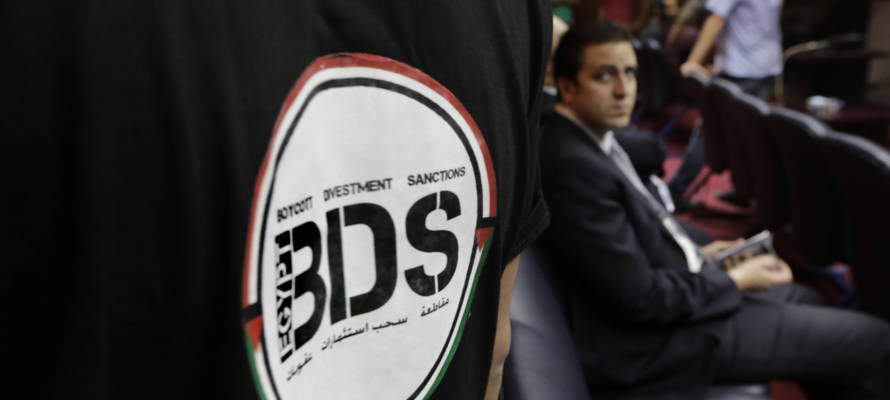The investment giant and its ratings firm Sustainalytics flag fewer companies for doing business in what it considers “occupied territory.”
By Mike Wagenheim, JNS
JNS reported last April that Morningstar and its subsidiary Sustainalytics had flagged 26 companies for doing business beyond the so-called Green Line in Israel. Its “controversy ratings” could dissuade socially-conscious investors from placing funds in those companies.
Under pressure from a growing list of state-level investigations for potential anti-Israel BDS practices, Morningstar and Sustainalytics—an environmental, social and corporate governance (ESG) rater—have trimmed the list down substantially.
Multiple sources told JNS that the list is now seven: B Communications, Bezeq, Construcciones y Auxiliar de Ferrocarriles, Elbit Systems, Elco, Electra and Shapir Engineering and Industry.
Elbit Systems, a Haifa-based international defense company, may still remain on Morningstar’s Global Screening Standards (GSS) watchlist. It also remains unclear what criteria Morningstar used when it removed the 19 companies from its broader list.
Morningstar previously acknowledged that “some clients may use GSS as a so-called ‘do not invest’ list in order to comply” with investment policies that demand divestment from companies deemed to breach international standards of business conduct.
“After months of negotiations and discussions with Morningstar about its assumptions, sources and language, we appreciate that a significant number of companies unfairly rated for their work with Israel have had these black marks lifted,” Elana Broitman, senior vice president for public affairs at the Jewish Federations of North America, wrote in a note seen by JNS.
The Federations has led a diverse coalition of U.S. Jewish and pro-Israel organizations that has urged Morningstar to eliminate inherently anti-Israel sources from its ratings process and alter language and methods that treat the Israeli-Palestinian conflict differently than other hotspots, disputed territories and conflict zones around the world.
“Our work is not yet done, however, and we look forward to further progress and Morningstar’s selection of experts to advise on these matters,” Broitman concluded in her note to the coalition.
In April, Sarah Wirth, a Morningstar spokeswoman, told JNS exclusively that the firm had removed U.S.-based Motorola Solutions from its GSS watchlist and erased an accompanying category three controversy rating. Morningstar said it could no longer confirm Motorola was under contract with the Israel Defense Forces, for which it was providing anti-terror detection systems.
Elbit, like Motorola, facilitates security systems for the security barrier in Judea and Samaria. It has been criticized for supplying drones, which critics allege were used to surveil and attack civilians during Israeli military operations against terrorists in 2009 and 2014. Sustainalytics has cited no evidence that Israel systematically targeted civilians using drones.
Last month, JNS reported that the Florida board that is responsible for state and local investments began investigating Morningstar for potential BDS activities shortly after an amended state anti-BDS law went into effect.
A source told JNS this week that Kentucky’s attorney general recently asked Morningstar for specific documents related to the 26 companies on its list. That source said Montana’s attorney general also contacted Morningstar last month about potential BDS issues. Neither attorney general responded to a JNS query.
Morningstar has repeatedly insisted it does not take part in BDS and has pointed to a willingness to engage with critics and to its October 2022 agreement with the American Jewish and pro-Israel coalition. It also cites a progress tracker, which it offers on its website, to show its fulfillment of commitments to that coalition.
“There is no question that the governors, attorneys general and treasurers around the country that have launched investigations have made it nearly impossible for Morningstar to continue its BDS business as usual,” Richard Goldberg, a senior adviser at the Foundation for Defense of Democracies, told JNS.
“Florida’s new Morningstar law, alongside continued attorney general document requests, likely played an oversized role in this decision,” Goldberg added.
Goldberg, who crafted the first U.S. anti-BDS law in Illinois, noted that a boycott is a boycott, even if just one company is targeted.
“State officials should ask for all documents related to these remaining seven companies to understand why they remain blacklisted,” he said. “But it’s also time to compare Morningstar’s updated ratings to its peers and understand how Moody’s, S&P and others treat the companies Morningstar has now removed from its blacklist.”
